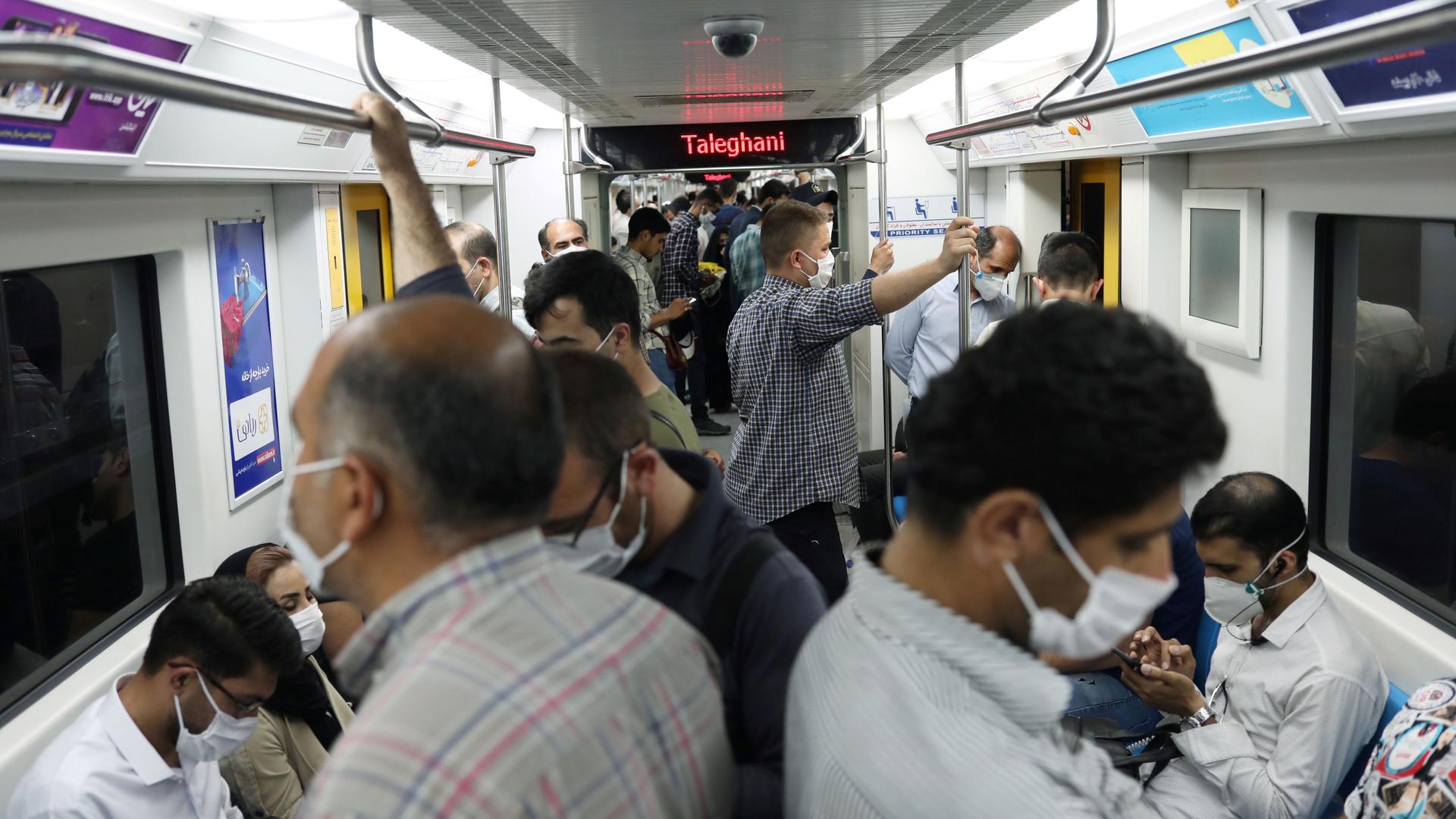Iranian health officials are raising alarm bells about a new surge in the number of cases of the coronavirus and deaths in the country.
Some 162 people died over the past day, the most since April 4, when the country reported 158 deaths in a 24-hour period, Sima Sadat Lari, spokeswoman for Iran’s Health Ministry, said on Monday.
“Since yesterday, we’ve seen a significant leap in infection rates and [hospital] admissions in Tehran, which is worrying.”
“Since yesterday, we’ve seen a significant leap in infection rates and [hospital] admissions in Tehran, which is worrying,” Sadat Lari said.
The number of COVID-19 infections has been on the rise since Iran started to ease its lockdown on April 11. About 11,000 people have died there since the pandemic set in, according to official government numbers.
Related: Alleged Iranian drownings of Afghan migrants spark tensions
On Sunday, President Hassan Rouhani said wearing face masks in closed public spaces and crowded areas will be mandatory starting July 5.
According to Iran’s Health Ministry, infections in the first week of June jumped 50% compared to the week before.
Mahdiar Saeedian, a physician and medical activist in the Iranian city of Mashhad, said Intensive Care Unit beds are filling up again. Ventilators are being used up, and the numbers are not good.
“Health care workers are exhausted,” said Saeedian, adding that he knows of at least 135 health workers who have died of COVID-19, while about 4,000 have contracted the virus.
Opening up the economy and managing the coronavirus is a tough balancing act that many countries across the world face. But Iran faces additional challenges — most importantly, US sanctions.
In 2018, United States President Donald Trump withdrew from Iran’s nuclear deal with major powers and reimposed sanctions. Iran’s currency has fallen to its lowest-ever level against the US dollar.
Related: Iran sends mixed signals on release of foreign prisoners
At the same time, Iran has been hit with one of the worst outbreaks of the coronavirus in the Middle East, causing major losses for businesses.
And there is another worrying trend, too.
Last week, an anesthesiologist posted a video on social media claiming that relatives of a patient attacked and beat him. He said they broke his nose and caused severe damage to his eyes. In the video, his face looks badly bruised.
Saeedian said months of social isolation, economic hardship and uncertainty about the future have left many people on edge. What’s worse, he said, Iran is nowhere close to the end of this pandemic.
When the country reopened, it seemed like good news to makeup artist Saloume Zarandinia, who had saved money for years to start her own business. She had even picked a name — Audrey — after her favorite actress, Audrey Hepburn.
Her plans were stalled during the lockdown. And when restrictions eased, she was nervous at first, but she takes safety precautions seriously — requiring staffers to wear masks and wash their hands before and after every client and not to apply lipstick directly to anyone.
Now, it’s unclear what will happen to businesses like hers as the coronavirus cases continue to jump.
Related: Afghans in shock after attacks on a maternity hospital and a funeral
Dr. Pooya Payandemehr, head of emergency care at Sina Hospital in Tehran, said that the lockdown might have come late, but it did save lives.
“We had a few patients during the past month. … We had one or two patients daily at most.”
“We had a few patients during the past month,” he said. “We had one or two patients daily at most.”
In April, he said, the number of new cases went down. So, his hospital started to dismantle the coronavirus triage section. But he suspected it wasn’t over.
Related: Iranian sailors dead after ‘friendly fire’ incident
“Opening up routine activities of citizens and opening the jobs and shops and restaurants and everything else, it causes people to be in the city again without keeping away from each other and the protective policies are not respected that much,” he said.
“We are dealing with a situation that will last for one or two years,” he said. “As you can see, there is no magic medication to wipe away the illness.”
